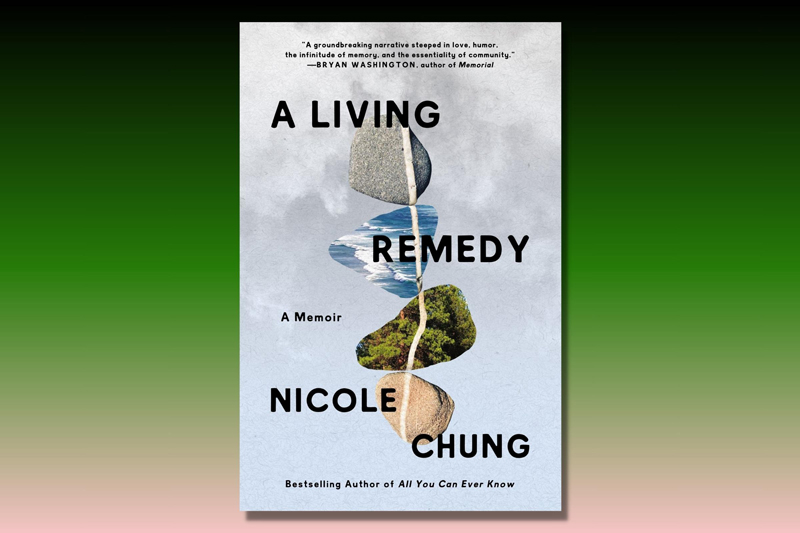In her poem “For Three Days,” Marie Howe writes that “even grief provides a living remedy,” that mourning can be a way to keep those we love alive. Nicole Chung took those words to heart when writing the follow-up to her poignant 2018 debut memoir, All You Can Ever Know, which detailed her experience as a Korean American adoptee of a white family.
A Living Remedy is an elegy for her adopted parents, who died within two years of one another. First, Chung lost her father in early 2018, before the release of her first book, to late-stage kidney failure made worse by the diabetes he was unable to properly treat due to financial reasons. (“It is still hard for me not to think of my father’s death as a kind of negligent homicide,” Chung writes, “facilitated and sped by the state’s failure to fulfill its most basic responsibilities to him and others like him.”) Then, in the early days of the COVID-19 pandemic, while writing this book, she lost her mother to cancer.
In lyrical prose, Chung, a TIME contributor, describes what it was like before her mother’s death, and the distance, both physical and emotional, that developed between them. In the end, her latest book is a brutally intimate portrait of the guilt and grief that comes with losing a parent. It’s also a searing indictment of a broken health care system from someone who saw firsthand how it exploits patients and their families. —Shannon Carlin
Buy Now: A Living Remedy on Bookshop | Amazon
- The 100 Most Influential People of 2024
- How Far Trump Would Go
- Why Maternity Care Is Underpaid
- Scenes From Pro-Palestinian Encampments Across U.S. Universities
- Saving Seconds Is Better Than Hours
- Why Your Breakfast Should Start with a Vegetable
- Welcome to the Golden Age of Ryan Gosling
- Want Weekly Recs on What to Watch, Read, and More? Sign Up for Worth Your Time
